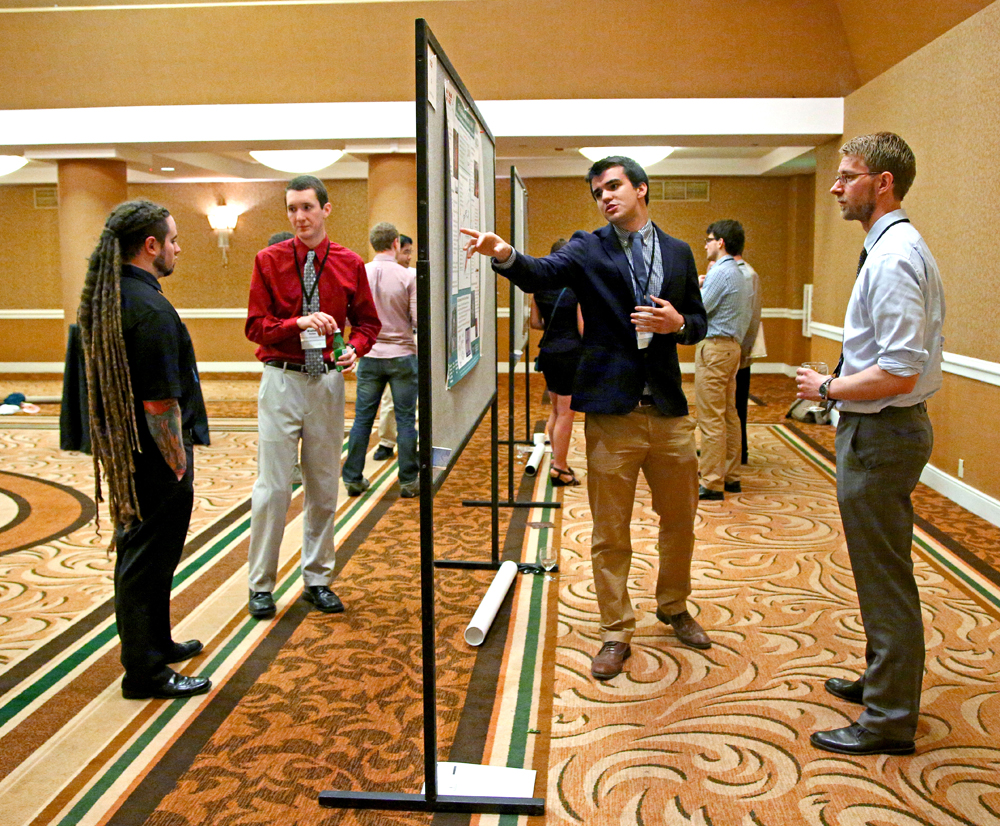 Tuesday, June 30 — 5:00-6:30 p.m.
Tuesday, June 30 — 5:00-6:30 p.m.
Penn Quarter B
The annual Fellows’ Poster Session affords attendees a unique opportunity to learn more about the research supported by the DOE NNSA SSGF program. Each session is divided into two presentation groups and each fellow is provided space to highlight his or her latest findings. This format allows all attendees – including fellow presenters – to ask questions of and engage in discussion with one another.
Group I — Presenting 5:00-5:45 p.m.
| Poster Number | Name | Title |
|---|---|---|
| 1 | Charles Epstein | The DarkLight Experiment |
| 3 | Cole Holcomb | Helium Detonation Conditions in Head-on Collisions of White Dwarfs |
| 5 | Io Kleiser | Stripped Massive Progenitors of Supernovae |
| 7 | Cameron Meyers | An Experimental Study of the Relationship Between CPO and the Anisotropic Viscosity of Polycrystalline Olivine |
| 9 | Sarah Palaich | Structure, Compressiblity and Thermal Behavior of CO2-IV to 24 GPa and 300-625 K |
| 11 | Hong Sio | The MagPTOF Diagnostic for Bang-time Measurements and Charged-particle Spectroscopy at the NIF |
| 13 | Sabrina Strauss | Random Probability Analysis for Superheavy Elements |
| 15 | Christopher Young | Time-synchronized Ion Velocity Measurements in Oscillating Plasma Discharges |
Group II — Presenting 5:45-6:30 p.m.
| Poster Number | Name | Title |
|---|---|---|
| 2 | Benjamin Galloway | Exploring the Self-modulated Regime of Laser Wakefield Acceleration on the Titan Laser |
| 4 | Fabio Sanches | The Black Hole Interior |
| 6 | Juan Manfredi | Extracting Neutron Spectroscopic Factors From 34Ar(p,d)33Ar and 46Ar(p,d)45Ar |
| 8 | Scott Moreland | Model to Data Analysis of the Nuclear Equation of State at Extreme Temperature and Density |
| 10 | Mareena Robinson | Passive Template-Based Measurement of High Explosives for Future Warhead Dismantlement Verification Regime |
| 12 | Collin Stillman | Experimental Validation of Opacity Models in High Energy Density Plasmas |
| 14 | Richard Vega | Discrete Ordinates Solution of the Neutron Transport Equation Using a Graphics Processing Unit |
